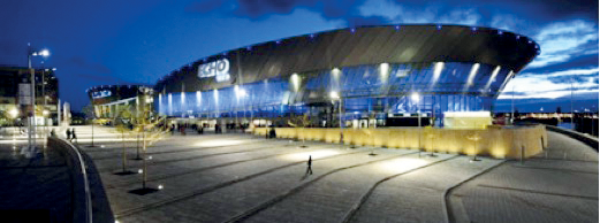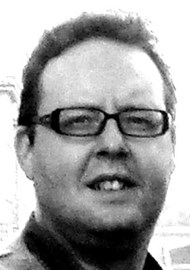The origins of the British Academic Conference in Otolaryngology (BACO) are indelibly intertwined in the mists of time with the foundation of the British Association of Otolaryngology (BAO). For further information on the latter I can only refer the interested reader to the works of Neil Weir, whose MD thesis has been extensively plagiarised in the preparation of this short article.
At the onset of World War II, all major UK surgical specialities had formed associations, with the exception of Urology and ENT. Otolaryngologists are of course notoriously reticent creatures, living monastic lives of solitude and reflection in their humble hermitages, only rarely venturing forth to eradicate manifestations of diseases of the head and neck from their beloved public.
Showing their characteristic cheerful optimism, the UK Ministry of Health had expected around 300,000 air raid casualties in the early years of conflict and had formed an Emergency Medical Service to organise the chaotic patchwork of voluntary and municipal hospitals. Most chronic patients were sent home (presumably to die quietly) in preparation for the deluge of wounded and moribund. Modern health bureaucrats who have attempted to close a cottage hospital minor injuries unit can only wonder with fond nostalgia at the phlegmatic public acceptance of the wholesale loss of hospital access.

BT Convention Centre, Liverpool.
With the sudden and belated need for coordination of mass healthcare provision, and the scintillating prospect of socialised medicine on the horizon it was recognised that there was an urgent need for a panel of great and good otolaryngologists to provide advice and guidance. Thus in the summer of 1943 Victor Negus (of King’s College Hospital), as president of the Royal Society of Medicine Section of Laryngology sent forth a mass mailing to all known ENT surgeons in the UK, requesting support in forming an association to promote the interests of otolaryngologists. 141 responded affirmatively, and the British Association of Otolaryngology (BAO) was founded at a meeting of the Medical Society of London on 10 September 1943, with membership limited strictly to those providing solely ENT services, GPs and general surgeons being left out in the cold. They have been feebly tapping at our window ever since.
“Otolaryngologists are of course notoriously reticent creatures, living monastic lives of solitude and reflection in their humble hermitages…”
Annual subscriptions were set at £1 and have always been collected on 1 October, leading to eternal confusion for the esteemed Honorary Treasurer when asked about the ‘current’ financial year. The first president was WH Mollison(of retractor fame) with Lionel Colledge as vice president and Negus as Hon Treas. 180 members stumped up the fee and the society immediately took up residence in Lincoln’s Inn Fields, contributing 25 guineas to the rebuilding fund for the Luftwaffe-stricken Royal College of Surgeons of England. Members were also approached to donate anatomical specimens to the gutted collections of the Hunterian Museum, to the eternal gratitude of generations of examination candidates.
Another early agenda item for BAO was the organisation of an academic meeting, although the aims of the society were explicitly political. The first major ENT International Congress had taken place in Copenhagen in 1928, followed by Madrid in 1932, and Berlin in 1936. The records of the latter were destroyed during the ensuing conflict so we are not sure exactly how the Third Reich involved themselves in the whole shindig. The Dutch had originally volunteered to cover 1940, with the UK pencilled in for 1944, but the plan was somewhat overtaken by events in Europe.
In 1947, the Dutch organisers wrote to BAO regretting their inability to deliver a congress, and the council unanimously agreed to step into the breach, much as the British Olympic Council had earlier decided to revive the Summer Olympics for 1948. Every ENT surgeon in the UK (whether one of the 291 BAO members or not) was asked to contribute £5 to the fund. With less than two years to prepare and no infrastructure in place, the indefatigable Negus set up an organising committee. The dates were set for 18 - 23 July 1949 at King’s College London, and 610 paid the full £5 attendance fee with 494 associate members, students and wives paying £1 each.
The event was held under the patronage of HRH King George VI, and the Duchess of Kent did the honours at the opening ceremony. It was the first major gathering of ENT surgeons in the UK, although the 1913 International Congress of Medicine in London had hosted sessions from the RSM laryngology and otology sections. 130 papers were presented in three major topics: antibiotics and drug treatment of rhinitis, treatment of aural vertigo and benign strictures of the oesophagus. The formidable Mrs Negus organised a full social programme, including a slap-up banquet and dance at the Dorchester attended by over a thousand giddy revellers.
After the five academic days in London, the delegates were farmed out to the provinces of Oxford, Cambridge and Edinburgh for further otolaryngological escapades. Chevalier Jackson was awarded Honorary Fellowship of the Edinburgh College in absentia, whereas the ubiquitous Victor Negus turned up to receive his in person. The overall profit came to £24 nineteen shillings and tuppence, but this was swallowed up by the £2625 spent on the publication of two volumes of Proceedings of the Congress.
Like the summer Olympics, the international congresses ran every four years in glamorous jet-set locations: Washington, Paris, Tokyo then Mexico City. They were generally poorly attended by the impecunious parochial British, who also rarely travelled to Europe because of potential language difficulties (we don’t learn any, in case you hadn’t noticed). Because of this, academic ENT in the UK was in danger of becoming something of an insular backwater, and there was no sign of the BAO organising any further meetings. Step forward Ronald Macbeth, head of the Oxford ENT department at the old Radcliffe Infirmary. He used his presidency of the RSM Otology section in 1961 to suggest a British Academic Conference in otolaryngology running four-yearly intervals between the International Congresses. BAO was rather cagey, but agreed to nominate a committee without directly involving itself in the organisation.
The reluctance of the UK’s professional association to involve itself in an academic meeting seems rather odd at this distance, but in 1961 BAO had only £800 in cash reserves, and was only prepared to loan the BACO organising committee £450 to cover the expenses of overseas speakers. The Royal College of Surgeons of England agreed to allow use of its facilities for free, and on 17 June 1963, 500 delegates attended a five-day conference. Ian Simson Hall was first master, and the financial success was such that BAO were repaid in full, and kept at arms’ length for the next 36 years. The 2nd BACO was hosted by Macbeth at Oxford in 1967 and for many years a panoramic photo of the delegates was on prominent display in the department. By 1974 the budget had snowballed to £36,000 and the meeting was switched to the current triennial frequency.
In 2009 BACO and BAO finally merged to give us ENT-UK in all its current glory. This summer’s junket in Liverpool is set to be the 15th, biggest and best with a stellar cast of speakers, state-of-the-art clinical skills section and pretty mean-looking golf day. Book early and book often.





